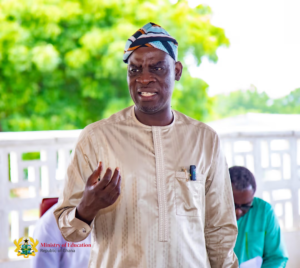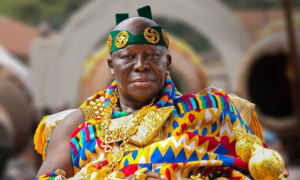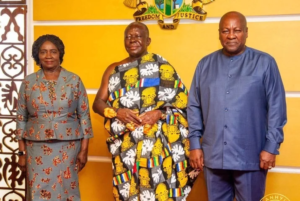Private legal practitioner, Martin Kpebu, has downplayed the significance of government’s decision to repeal the LI 2462 which allows mining in forest reserves, arguing that while it is a positive step, it does not introduce anything fundamentally new in the fight against illegal mining (galamsey).

Speaking in reaction to the government’s engagement with civil society organizations (CSOs) on the matter, Kpebu explained that many of the commitments highlighted by President John Mahama were already in motion before the recent meeting.
“This repeal is not as if it’s going to bring anything new. Even before this, the president had announced on more than three occasions that there would be no more mining in forest reserves. That, for me, is the big-ticket item. That is what stops the bleeding,” he said on TV3’s KeyPoints on October 4.
Kpebu stressed that the President’s repeated commitment to halt mining in forest reserves marks one of the most important policy shifts in Ghana’s mining sector.
He described the decision as “huge,” given the history of indiscriminate issuance of mining leases, especially in protected areas.

“From the very beginning, there were nine forest reserves invaded by illegal miners. Now, we have security forces stationed there permanently. For me, this is commendable, and it shows government is responding to citizen advocacy,” he noted.
He explained that permanent police presence in the forests is a stronger and more sustainable approach compared to deploying soldiers.
Citing Ghana’s Constitution, he argued that the police, not the military are mandated to maintain internal law and order.
While many activists have hailed the repeal of the law, Kpebu argued that it should be seen as “icing on the cake” rather than the core of the fight.
He pointed out that existing mining companies like Newmont already hold leases in some forests, and the current law is needed to regulate their operations.
“The repeal is not the beginning of action. It’s not a magic wand. What matters more is enforcement of existing laws and sustained monitoring. As we speak, government has already reclaimed two more forest reserves, bringing the total number secured to 11. That’s progress,” he said.
He added that rather than discarding laws wholesale, there should be careful reform to strengthen regulation while preventing loopholes.
Kpebu also dismissed repeated calls for a state of emergency, arguing that government already has the legal tools to act.
“Some people speak as if until we declare a state of emergency, nothing can be done. But as we’ve seen, without such a declaration, police and security officials are already stationed in the forests, and illegal mining has been pushed back. The laws we have are enough to act decisively,” he said.
To illustrate his point, Kpebu likened the debate to a famous anecdote from university life, where a ban on hosting guests at night led to a protest. When authorities clarified that daytime visits were still allowed, the protest fizzled out.
“It’s the same here—we don’t need a state of emergency before we take action. The laws already empower us,” he explained.
Despite acknowledging progress, Kpebu emphasized the need for ongoing citizen vigilance and periodic engagement with the presidency to sustain pressure and ensure accountability.
“Maybe in the next three months, CSOs should meet the president again. That way, he will be compelled to seek updates and refine strategies. Vigilance, vigilance, vigilance, that’s what will keep this fight alive,” he concluded.
Source: 3news.com by Christabel Success Treve






